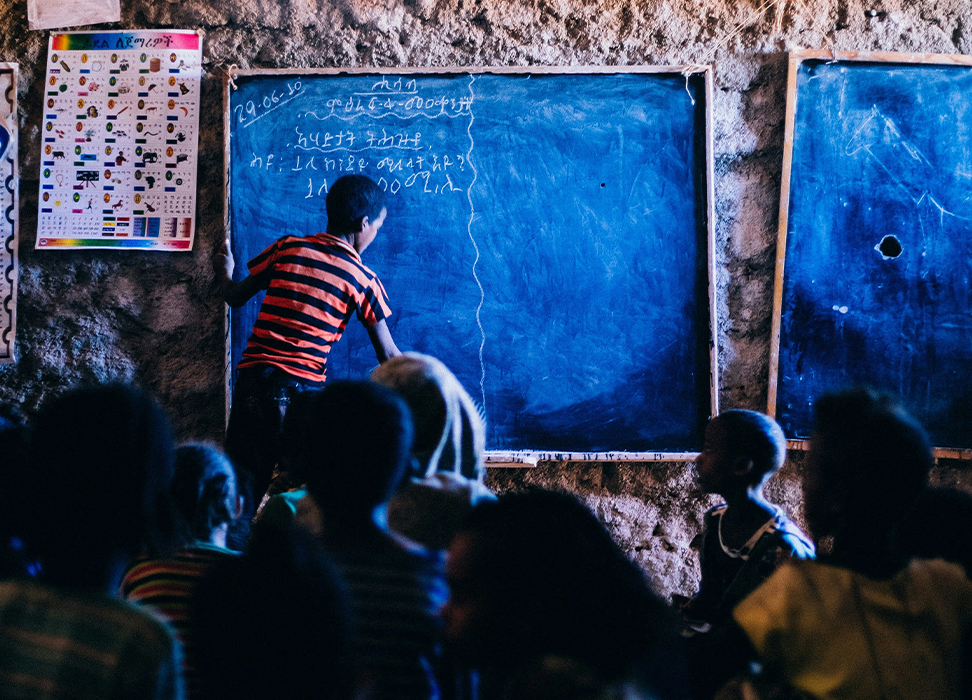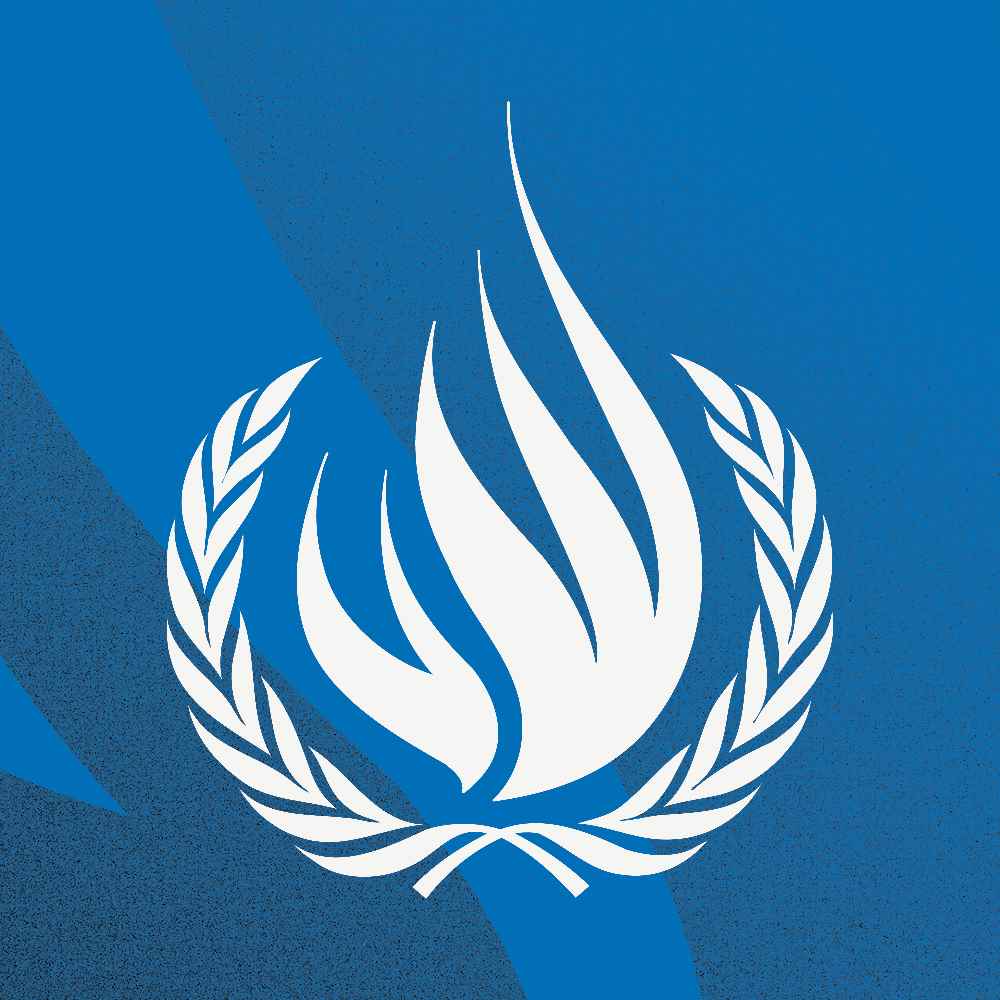
“It is time for a profound shift in our approach to economic policies. It is time to integrate human rights into the heart of the international financial architecture.” UN Human Rights Chief Volker Türk was speaking during the Sixth Intersessional Meeting of the UN Human Rights Council on Human Rights and the 2030 Agenda.
The meeting was an opportunity for member States, experts, UN partners and civil society groups to come up with concrete recommendations to integrate human rights into the overhaul of the international financial architecture and move towards a “human rights economy” that protects human rights and promotes equality and social justice.
Compounded by the effects of the COVID-19 pandemic, rising cost of living and the climate emergency, many developing countries are struggling to raise sufficient financial resources to invest in the achievement of the Sustainable Development Goals (SDGs) and the realization of human rights.
Record levels of debt and high interest rates mean that many governments in developing countries are spending more on servicing foreign public debt than on health, education and poverty eradication, creating a human rights crisis. Economic reforms and austerity measures, encouraged by the international financial institutions, prioritize debt repayment obligations over human rights obligations.
Marcella Favretto, Chief of Sustainable Development at UN Human Rights, said there is a growing consensus to place human rights at the heart of reforms of the international financial institutions, as an indispensable condition to implement the 2030 Agenda and to secure the funding for social spending programs that advance human rights.
“For too long there has been a notion that the economy is a human rights free zone,” said Favretto, adding that budgets and other aspects of economic policy-making should be guided by human rights.
“The argument is that international financial institutions are not bound by human rights and don’t have a mandate. The reality is that the States they support have obligations, so human rights have to be part of the equation,” Favretto said. International financial institutions should refrain from prescribing austerity measures that limit the fiscal space for investing in human rights.
“
Half of humanity – 3.3 billion people – live in countries where governments are compelled to spend more on servicing their debts than on education or health.
“
Paula Narváez, president of the UN Economic and Social Council, spoke of the need to bridge the “great finance divide” and get the SDGs back on track. This can be done by unlocking more concessional financing or loans with lower interest rates and longer.
“The current international financial architecture still operates in a way that is at odds with our collective commitment to universal human rights,” said Narváez, adding the International Monetary Fund and the World Bank were created 80 years ago, but needed to be fit for purpose in today’s global economy.
A number of States emphasized the urgency of tackling debt distress.
Maryann Lwandamina, from Zambia’s Finance Ministry, said that more than 90 percent of Zambia’s revenues were committed to debt repayment and salaries of public servants in 2020, when the African country defaulted. Since then, delays in its debt restructuring are having a heavy social cost, she said.
“The debt problem in low-income and some middle-income economies continues to deepen after the pandemic. The prevailing situation has brought into question countries’ abilities to attain the SDGs and as well as uphold human rights.”
Many recommendations focused on the need to strike a better balance between debt management and maximizing resources for the realization of rights, including creating a multilateral legal framework for restructuring sovereign debt that stimulates economic recovery, but not at the expense of human rights.
Human rights impact assessments
Sarah Saadoun, senior researcher at Human Rights Watch, said international financial institutions should ensure that major economic policy reforms be assessed for their impact on poverty and human rights.
A recent Human Rights Watch report into IMF loans to 38 countries from the start of the pandemic in March 2020 until March 2023 showed the majority of loans were conditioned on austerity policies, which cut government spending or increased regressive taxes in ways likely to harm rights for the most vulnerable.
This is the case for Alfredo Akeyo, who fixes electronics for a living in Mathare, Kenya. A steep increase in fuel and electricity prices as part of an IMF program meant he can barely provide for the family, Saadoun said. Alfredo’s family now goes five or six days per month without power and his children sometimes stay home from school because the cost of taking the public bus has doubled.
“Human rights is about the right to health, to education, to adequate standard of living, to social security, so whenever governments and financial institutions consider economic policy reforms, the question they should be asking is: Does this improve people’s human rights?,” Saadoun said.
Global tax framework
A number of States and experts also agreed on the need to redesign the global tax architecture. Countries around the world are losing US$ 480 billion per year to global tax abuse by large multinational corporations and the superrich, according to the 2023 Tax Justice Network report. This drains resources that could be used to invest in the SDGs and human rights, with developing countries losing a greater proportion of their public budgets.
“The Global South is hugely affected by the unjust, outdated and unfair international financial system,” said Solomon Ayele Dersso, Commissioner of the African Commission on Human and Peoples’ Rights.
Dersso said the African group brought forth the resolution for a UN Framework on international tax cooperation with the goal of creating a fairer, more inclusive and effective global tax architecture that will better tackle tax avoidance and evasion, so that multinational corporations pay their fair share of taxes.
“
The global financial system is broken. Many countries are simply unable to sustainably invest in human rights and the SDGs.
“
UN HUMAN RIGHTS CHIEF, VOLKER TÜRK
Attiya Waris, Independent Expert on foreign debt and human rights, said climate-vulnerable countries are particularly affected by debt. Waris said that high debt also had an impact on child nutrition and mental health.
Fernanda Cimbra Santiago, special advisor to Brazil’s Minister of Finance, said that a global economic agenda that protects both human rights and the environment will be a key priority of the South American country’s presidency of the G20.
“We need a new model of economic development,” Cimbra Santiago said, calling for a global deal that connects economic growth, the sustainable use of natural resources and human rights.
The outcomes of the meeting will feed into the upcoming Summit for the Future in September 2024 and the 2025 UN conference on Financing for Development.
Tags












